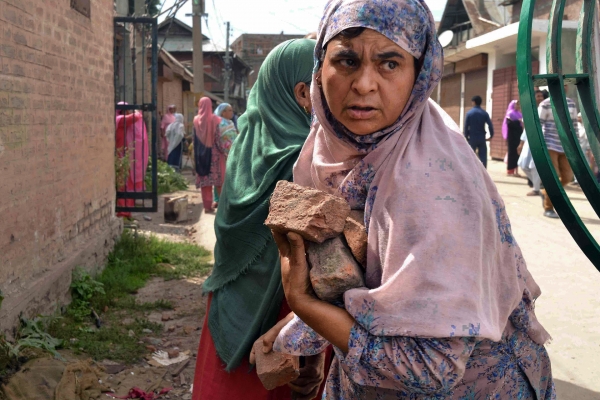Following the protests in August 2019, the Indian government revoked Kashmir's autonomy and imposed the militarisation of the area with restrictions on movement, communication and aggregation. As a consequence, with the outbreak of the pandemic and the strengthening of pre-existing restrictive measures, there has been a significant increase in domestic violence.
Today, Kashmir women must simultaneously face the effects of the pandemic and martial law. The loss of jobs and the lockdown for many men has resulted in frustration and confinement in the home environment. In addition, with the dissolution of the local autonomous authorities, the main body for protection against domestic violence - the Jammu and Kashmir State Commission for Women - had to suspend its activity. The absence of this body, the inefficiency and reluctance of the central government and the inability of clinics and police forces to address the problem, due to inadequate training and resources, resulted in a lack of protection for the victims. In addition, seeking help from relatives or the civil society is not possible because of the measures imposed by the Indian Government to allegedly guarantee the security of the territory.
However, some forms of protest have taken place. Contrary to Indian law provisions, street demonstrations, graffiti on walls and communication, support and organisation networks on social media have been created. Several victims have also tried to directly contact politicians and former members of the Commission for Women, but as long as it is physically impossible to operate in the territory, these actions will be fruitless, making it difficult to protect and safeguard the victims.
To read more, please visit:
https://www.thenewhumanitarian.org/news-feature/2020/07/09/Kashmir-women-violence-coronavirus
https://www.aljazeera.com/indepth/features/women-biggest-victims-inhumane-siege-190820122327902.html
https://www.thenewhumanitarian.org/photo-feature/Kashmir-military-conflict-violence-women
https://thewire.in/rights/kashmir-social-media-child-abuse-sexism
Author: Matteo Consiglio; Editor: Margherita Curti




